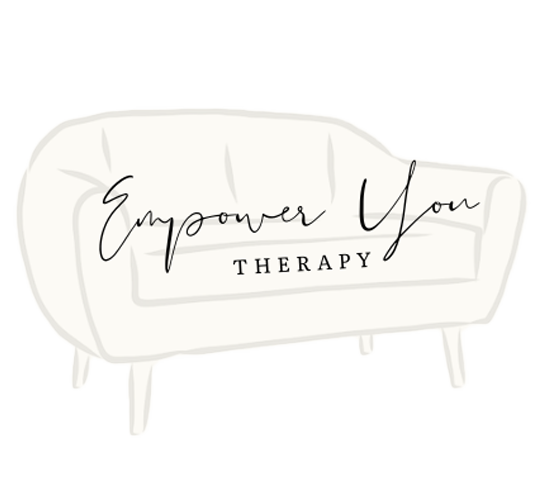Questioning one’s faith can be a daunting space to step into. So many facets of our purpose in life, sense of identity and community, and morals and values are now grounds for doubt where there previously were none. Faith transitions, according to Pew Research Center, have affected at least 44% of adults, making it more common than many think. Let’s dive into some common questions many have and how working with a faith transition therapist in Utah can assist you in navigating this journey.
“Is it okay to question my beliefs?”
Often, the first hurdle in a faith transition is simply feeling comfortable with the idea of questioning your beliefs. Whether you grew up surrounded by other members of your faith or found religious convictions later in life, it can be a big step to begin questioning these beliefs.
Questioning is a necessary and natural element of personal growth. Indira Gandhi said, “The power to question is the basis of all human progress.” By asking questions, you explore and understand your values more deeply, leading to a more authentic version of yourself. You may find that this strengthens some of your beliefs by providing greater confidence in what you have held to be true. You may also discover new beliefs that truly align with your personal values, rather than beliefs solely influenced by external factors. A faith transition therapist in Utah can provide the support you need as you navigate this crucial phase.
“Who am I if I am no longer a member of my faith?”
Your identity is not solely defined by your religious affiliation. It may have been a part of you, but you are a multifaceted being with a complex, individual identity.
Taking time to explore your values, interests, passions, and strengths and engaging in activities that bring you joy and fulfillment can help you rediscover who you are beyond religious identity. Focusing on nurturing the relationships and connections that matter to you, diving into your cultural heritage beyond faith-centered stories, and reflecting on what fills you with a sense of purpose and meaning may guide you to discover a deeper sense of identity than before. A dedicated faith transition therapist in Utah can guide you through this exploration, allowing you to embrace this journey with clarity and confidence.
“How do I handle religious rituals and practices I used to follow?”
The decision to step back from a religion does not have to be synonymous with leaving every ritual behind. It does mean that you get to choose what you continue and why. Exploring the meaning within the practices can lead to a deeper connection with what truly resonates with you.
For example, perhaps you enjoyed your religion’s focus on a restful and family-filled Sunday. Maybe the idea of scripture study and church attendance every Sunday morning no longer resonates with you, but spending the morning practicing self-care and hosting a family dinner in the evening brings a deeper sense of grounding and connection.
Examining the reasons behind these rituals and practices in therapy can help you reflect on personal meaning and gradually transition into a more fulfilling spiritual life.
“How will this change affect my relationships with family and friends?”
The decision to talk with loved ones about your faith questions or transition may take time and consideration. You can control only what’s on your side of the street, so how your loved ones react is completely up to them. Sometimes family members or friends need time to adjust to the changes, and sometimes their initial reactions may feel scary or highly emotional.
Seeking common ground and cultivating a respect for differences may come with time and open, honest conversation. Establishing boundaries along the way can provide safety, as letting others know what topics or discussions are off-limits if they become too uncomfortable or contentious can be important in keeping relationships peaceful.
A trained faith transition therapist in Utah can provide guidance and strategies to address the fears and anxieties of sharing your faith transition, as well as help identify what boundaries need to be set and how to establish and maintain them.
“Why do I feel guilt, fear, or sadness about my changing beliefs?”
You may be surprised by the waves of emotions that hit you at any stage of a faith transition. The identity change, fear of rejection, shift of beliefs, and uncertainty can stir up reactions even months or years later. You might feel like you’re betraying your past self or loved ones by changing your beliefs. You may struggle with feeling certain about your choices. You may feel sadness or grief over the loss of comfort, community, and traditions associated with your former faith. It’s completely valid to mourn the aspects of your past that brought you joy and meaning.
By acknowledging and processing your emotions, you facilitate healing. This allows you to move forward without unresolved emotional baggage and gain a deeper understanding of who you are, creating a life that better aligns with your beliefs and aspirations.
“What if I don’t know if I want to leave my faith?”
No therapist should be pushing you toward or away from your religion. Faith transitions and faith journeys take time. Finding the right therapist who will create a safe space to feel comfortable and confident in your own decisions is an important aspect of navigating faith transition therapy. Understand that it’s okay to be uncertain and that finding clarity can take time. Be patient and compassionate with yourself as you explore your beliefs and feelings.
If you have an interest in working through your faith transition, check out some of our expert faith transition therapists in Utah who have been trained on how best to guide you through this difficult time. You can search through our therapists here.
This blog post was written by Amanda Clavell.




